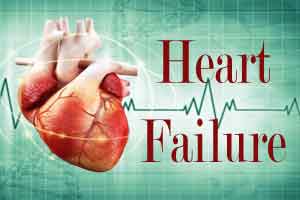- Home
- Editorial
- News
- Practice Guidelines
- Anesthesiology Guidelines
- Cancer Guidelines
- Cardiac Sciences Guidelines
- Critical Care Guidelines
- Dentistry Guidelines
- Dermatology Guidelines
- Diabetes and Endo Guidelines
- Diagnostics Guidelines
- ENT Guidelines
- Featured Practice Guidelines
- Gastroenterology Guidelines
- Geriatrics Guidelines
- Medicine Guidelines
- Nephrology Guidelines
- Neurosciences Guidelines
- Obs and Gynae Guidelines
- Ophthalmology Guidelines
- Orthopaedics Guidelines
- Paediatrics Guidelines
- Psychiatry Guidelines
- Pulmonology Guidelines
- Radiology Guidelines
- Surgery Guidelines
- Urology Guidelines
About 50 % of people wrongly believe that heart failure is normal in old age

Low awareness of heart failure among patients and the public are highlighted in surveys to be presented during Heart Failure 2019 the annual congress of the Heart Failure Association (HFA), a branch of the European Society of Cardiology (ESC), taking place in Athens, Greece from 25 to 28 May.
Today's preview, on Heart Failure Awareness Day, reveals other myths about heart failure: one in five members of the public said patients should avoid exercise, while just over half of patients knew that exercise can be a treatment for their disease. Tips for patients on living with heart failure can be found on the Heart Failure Matters website.
The HFA is set to launch the Heart Failure Atlas which maps disparities in prevention and treatment across ESC member countries. Congress attendees will get the first look in Athens.
Novel research on many heart failure topics will be presented during the event in 1,700 abstracts, including:
- In vitro fertilisation: linked to heart failure?
- You are what you eat: diet, gut microbes, and heart failure outcomes.
- How yogic breathing is being used in chronic heart failure.
- What determines who follows heart failure treatment advice, and who doesn't?
- How machine learning could help select patients for cardiac resynchronisation therapy.
- Predicting recovery of ejection fraction in heart failure patients.
- Do women and men need different doses of heart failure drugs?
- An innovative non-invasive biomarker to detect heart transplant rejection.
Explore the scientific programme for Heart Failure 2019 and the World Congress on Acute Heart Failure. To be held 25 to 28 May at the Megaron Athens International Conference Centre.
Four late-breaking trial sessions 1 on acute and chronic heart failure, innovative treatments, device therapies and registries will showcase cutting edge findings, among them:
- PHARM-CHF randomised controlled trial on improving adherence to heart failure medications.
- ReBIC-1 randomised trial on the safety of diuretic withdrawal in chronic heart failure patients.
- Can activity of the adrenomedullin system be used to personalise acute heart failure treatment?
- First-in-human research: DSR-FIH study of direct sodium removal and VECTOR-HF study of a novel battery-free and wireless pressure monitor.
The world's leading heart failure congress will attract around 6,000 cardiologists, cardiac nurses, surgeons, general physicians, basic scientists, and epidemiologists from over 100 countries. The latest advances in prevention and treatment will be discussed in more than 175 sessions across four days.
Technology update: Mobile applications for heart failure management, and the role of social media. Plus the use of big data, artificial intelligence, and wearable devices for monitoring patients with heart failure.
Featured presentations: Are cancer and heart failure enemies in treatment? Leaders in the field take a look at whether heart failure promotes cancer or vice versa, common pathways in tumour growth and heart failure, which cancer therapies are toxic to the heart, and molecular strategies to combat cardiotoxicity.
Not to miss: Emerging drugs and devices in heart failure.6-10 Of particular interest: What is different about heart failure in women? Also on the agenda: Developments in lifestyle including alcohol, tobacco, diet, weight control, sodium restriction, exercise, and sex life.1
The congress theme is: "Heart failure: from alpha to omega". Professor Gerasimos Filippatos, scientific chair, said: "Based on the first and last letters of the Greek alphabet, the theme illustrates that the meeting will cover the entire heart failure journey, from prevention through to palliative and end of life care."

Disclaimer: This site is primarily intended for healthcare professionals. Any content/information on this website does not replace the advice of medical and/or health professionals and should not be construed as medical/diagnostic advice/endorsement or prescription. Use of this site is subject to our terms of use, privacy policy, advertisement policy. © 2020 Minerva Medical Treatment Pvt Ltd